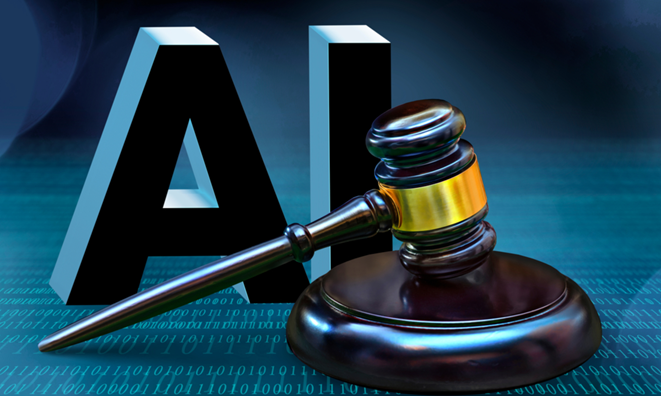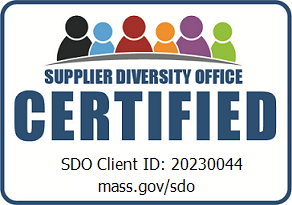AI Is Reshaping Everything—Now Policy Has to Catch Up
As artificial intelligence continues to accelerate innovation and disrupt traditional workflows, the policies that govern its use are struggling to keep pace. For tech leaders, founders, and policymakers alike, understanding the evolving regulatory landscape isn't just about compliance—it's about staying competitive, protecting stakeholders, and shaping a responsible future.
This article explores how AI policy is influencing hiring practices, business strategy, and global standards, and why now is the time for thoughtful, proactive governance.

AI’s Expanding Role in the Tech Industry
Artificial intelligence is more deeply integrated into the fabric of the tech sector than many would like to admit. From automating repetitive tasks to accelerating product development, AI is reshaping how companies operate.
In 2025 alone, over 77,000 jobs were cut across major tech firms as AI replaced roles previously performed by humans. While companies tout reskilling initiatives and new job creation, those efforts remain more aspirational than widespread.
Still, AI is helping the remaining workforce do more with less. Tools like Microsoft Copilot enable developers to write code faster, and AI-driven analytics have transformed how businesses process and act on data. This shift goes beyond simple cost savings—tech organizations are rethinking team structures, investing in AI infrastructure, and flattening hierarchies. Roles in middle management, HR, customer support, and even engineering are being redefined or eliminated as AI’s capabilities grow.
The World Economic Forum projects that AI will ultimately result in a net increase in jobs—170 million created versus 92 million lost—but that doesn’t mean the transition will be smooth. For those whose roles are being displaced, the disruption is deeply personal and immediate.
AI in Tech Hiring
Hiring is being transformed by AI, introducing both powerful efficiencies and complex challenges. On the one hand, AI-powered platforms now streamline sourcing, screening, and candidate outreach—reducing time-to-hire and recruitment costs by up to 40%. These tools leverage predictive analytics to match candidates based on skills, experience, and cultural fit, while AI-based assessments offer more objective evaluations of technical capabilities.
On the other hand, transparency and fairness are growing concerns as many employers fail to notify applicants when AI is used in the hiring process. As a result, candidates increasingly worry that algorithmic bias may screen them out before a human ever sees their application. The growing use of AI in hiring raises critical questions about accountability and equitable access.
Simultaneously, candidates are also embracing AI to gain an edge. Nearly half report using tools like ChatGPT to write resumes and cover letters, and 70% say doing so improves their response rates. Some even rely on AI to help prepare for interviews or generate real-time answers.
This introduces new ethical and practical questions: Is AI-assisted preparation simply the new norm—or does it blur the line between legitimate support and misrepresentation? While many companies are adapting to this evolving dynamic, the broader conversation around authenticity, transparency, and fairness is just beginning.
AI Policy and Legislation
As AI becomes more powerful and pervasive, policy and regulation are taking center stage. The stakes are high: without guardrails, AI can deepen bias, compromise privacy, and erode trust. Yet overly rigid laws could also stifle innovation and hinder progress. The challenge for policymakers is to strike a balance—protecting people and society while enabling technological advancement.
The Current U.S. Approach
In recent years, the U.S. has shifted its stance on AI regulation. A key development came in January 2025, when the current administration signed the executive order “Removing Barriers to American Leadership in Artificial Intelligence.” The order emphasizes economic competitiveness, human flourishing, and national security—rolling back prior directives and promoting faster AI development. It also calls for a national AI Action Plan, bringing together experts from science, technology, and security to shape forward-looking policy.
This approach contrasts with the previous administration’s more cautious focus on safety, transparency, and accountability. Initiatives like the AI Bill of Rights and earlier executive orders aimed to build public trust in AI through mandatory practices such as bias audits and model explainability. Under the new direction, these practices are no longer federally required—though many companies may still adopt them to meet enterprise client, investor, or local regulatory expectations.
Key Federal Efforts Shaping the Landscape
While comprehensive federal legislation is still lacking, several developments are already shaping U.S. AI policy:
- The TAKE IT DOWN Act (April 2025) criminalizes nonconsensual sharing of AI-generated intimate imagery (e.g., deepfakes). Critics warn it may raise free speech concerns.
- CREATE AI Act: Aims to establish the National AI Research Resource (NAIRR) to broaden access to compute and datasets—especially for under-resourced researchers.
- The White House AI Guidelines (April 2025) requires federal agencies must manage risks from “high-impact AI,” reduce vendor lock-in, and improve transparency. These voluntary standards often influence industry behavior.
Federal agencies like the National Institute of Standards and Technology (NIST) are also developing tools like the AI Risk Management Framework, which many companies use to guide responsible AI development—particularly in workforce and hiring contexts.
State and Local Governments Are Leading the Way
In the absence of sweeping federal law, states and cities are stepping in:
- New York City requires annual bias audits for automated hiring tools and public disclosure of results.
- Colorado (effective 2026) mandates that companies notify applicants when AI is used in hiring and allows individuals to correct data or file complaints.
- California is considering laws to prevent algorithmic discrimination and clarify how civil rights laws apply to AI.
These local laws often become de facto national standards, as companies standardize practices across all locations to stay compliant.
The Global Perspective
Internationally, the European Union has taken a more aggressive regulatory stance. Its AI Act, effective August 2024, classifies workplace and hiring-related AI as “high risk.” It mandates transparency, human oversight, and strict compliance requirements.
Other countries—including Canada, Singapore, and Brazil—are creating frameworks inspired by the EU model. Common themes include:
- Algorithmic Transparency requiring that organizations must explain how AI systems make decisions.
- Ethical Safeguards for new laws require bias mitigation, safety testing, and harm reduction protocols.
- Data Privacy Protections to enhance user consent and strict data controls are becoming standard.
Why AI Policy and Legislation Matter for Hiring and Business
For tech companies, recruiters, and candidates, AI policy isn’t just a legal issue—it’s a business priority. Transparent and fair AI builds trust with users, employees, and regulators, helping companies stand out in a crowded market. Those that proactively manage compliance not only avoid lawsuits, fines, and reputational damage but also signal maturity and responsibility. At the same time, clear and well-designed regulations can reduce uncertainty and create a stable foundation for innovation. Businesses that understand and anticipate regulatory shifts are more agile, better positioned to attract top talent, and more likely to seize new opportunities in an evolving landscape.
Looking Ahead to Responsible AI
The road to responsible AI is still being paved. The U.S. is weighing whether to rely on voluntary standards or pass binding laws. Meanwhile, states—and the rest of the world—are pushing forward with their own rules.
For companies and individuals in the tech ecosystem, staying informed and proactive isn’t optional—it’s essential. As AI continues to shape the future of work, business, and society, we must ask: How do we ensure progress without losing sight of ethics, equity, and accountability?
Sources:
- R Street Institute. (2025, June 24). AI Policy in Congress Mid-2025: Where Are We Headed Next?
https://www.rstreet.org/commentary/ai-policy-in-congress-mid-2025-where-are-we-headed-next/ - R Street Institute. (2025, June 18). Reflections on Three AI Hearings from the Past Three Months.
https://www.rstreet.org/commentary/reflections-on-three-ai-hearings-from-the-past-three-months/ - R Street Institute. (2025, June 5). Adam Thierer Congressional Testimony: The Federal Government in the Age of Artificial Intelligence.
https://www.rstreet.org/outreach/adam-thierer-congressional-testimony-the-federal-government-in-the-age-of-artificial-intelligence/ - R Street Institute. (2025). Artificial Intelligence - R Street Institute.
https://www.rstreet.org/artificial-intelligence/ - Industrial Cyber. (2025, January 10). R Street Institute focuses on cybersecurity, AI policy priorities for incoming US administration.
https://industrialcyber.co/reports/r-street-institute-focuses-on-cybersecurity-ai-policy-priorities-for-incoming-us-administration/ - Inside AI Policy. (2025, May 29). R Street urges federal research strategy with focus on open-source AI, standards and metrics.
https://insideaipolicy.com/ai-daily-news/r-street-urges-federal-research-strategy-focus-open-source-ai-standards-and-metrics - R Street Institute. (2025, May 22). Comments of the R Street Institute in Request for Information on the Development of a 2025 National Artificial Intelligence (AI) Research and Development (R&D) Strategic Plan.
https://www.rstreet.org/outreach/comments-of-the-r-street-institute-in-request-for-information-on-the-development-of-a-2025-national-artificial-intelligence-ai-research-and-development-rd-strategic-plan/ - R Street Institute. (2025, June 6). Wrap Up: Congress Must Ensure the Federal Government Has Tools to Deploy Artificial Intelligence Effectively and Efficiently.
https://www.rstreet.org/commentary/wrap-up-congress-must-ensure-the-federal-government-has-tools-to-deploy-artificial-intelligence-effectively-and-efficiently/ - U.S. House Committee on Oversight and Accountability. (2025, June 6). Wrap Up: Congress Must Ensure the Federal Government Has Tools to Deploy Artificial Intelligence Effectively and Efficiently.
https://oversight.house.gov/release/wrap-up-congress-must-ensure-the-federal-government-has-tools-to-deploy-artificial-intelligence-effectively-and-efficiently/ - Los Angeles Times. (2025, July 4). How a GOP rift over tech regulation doomed a ban on state AI laws in Trump’s tax bill.
https://www.latimes.com/business/story/2025-07-03/how-a-gop-rift-over-tech-regulation-doomed-a-ban-on-state-ai-laws-in-trumps-tax-bill
Subscribe to our newsletter!
Resources for Careers, Talent Acquisition and Management







